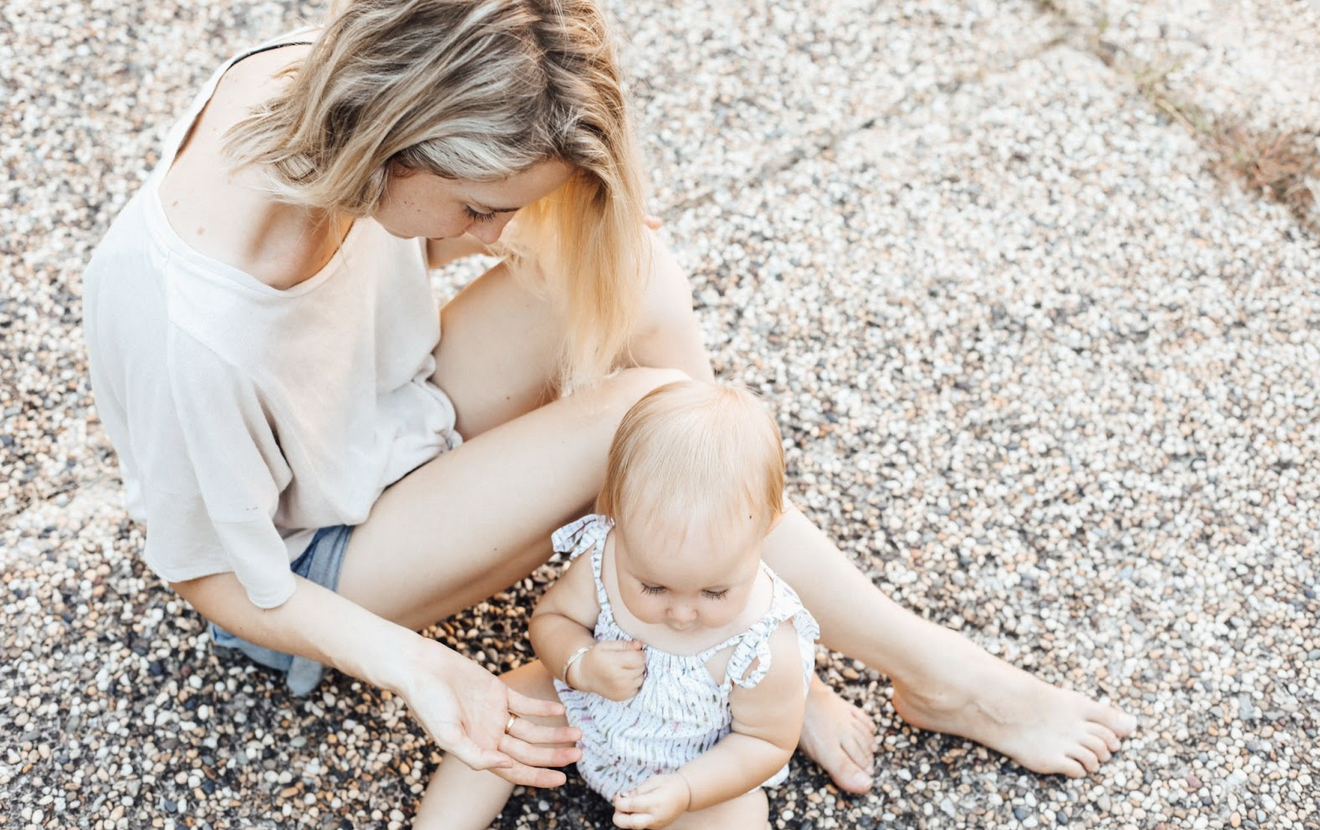After giving birth, it is normal to worry about your child’s health and safety. These reflections can also upset you occasionally. However, these thoughts may repeat frequently and get worse over time. You may suffer from a condition if you constantly ensure your baby is breathing or if you’re cleaning their clothes repeatedly.
About 3% to 5% of new mothers exhibit recurring behaviors that may stem from postpartum OCD. Obsessive Compulsive Disorder can develop during pregnancy or childbirth. There is also a possibility that you suffered from OCD before pregnancy, but the hormones, stress, and life shifts that come with having a baby can make it more prominent.
In This Article
What Is Postpartum OCD?
Postpartum OCD is an anxiety disorder that causes new mothers to experience recurrent behaviors or unwanted thoughts that may worry them. These thoughts are called obsessions or compulsions and affect mental peace and stability.
Like other types of anxiety disorders, if you suffer from postpartum OCD, you may not have control over these intrusive thoughts. These obsessions usually revolve around your baby being hurt. However, you need to analyze whether you are just concerned about your baby or suffering from a compulsive disorder.
If your anxiety is temporary and does not affect your everyday life, you are just concerned about your newborn. However, if you suffer from constant anxiety, which impairs and interferes with your daily functioning, you might suffer from a postpartum disorder.
Ensuring you are not making mistakes as a new mom or constantly checking your baby monitor are common thoughts that can affect you if you suffer from postpartum OCD. These repetitive and intrusive thoughts can make it difficult for you to care for your baby properly. Even if you do not intend to hurt your little one, you will always be afraid of doing it by mistake.
What Are the Symptoms of Postpartum OCD?
The most common symptoms of postpartum OCD are persistent thoughts and repetitive behaviors. Usually, new moms face one of the two, but it is possible that you experience both compulsions and obsessions.
When you suffer from this anxiety, the two most common fears are hurting your baby and constant concern about germs. These thoughts and behaviors can interfere with your daily functioning and harm your baby and your family.
There are other symptoms of postpartum OCD, which may include the following.
- You avoid certain activities with your newborn, such as changing diapers or carrying the baby up or down the stairs
- Constantly needing a helper or your partner nearby because you are afraid you might hurt your baby
- Constantly worrying thoughts that something terrible will happen to your newborn baby
- Repetitive behaviors like checking to see if your baby is breathing, constant cleaning, or frequent prayers to prevent your fears from coming true
- Having trouble sleeping because of your unwanted, intrusive thoughts
- You suffer from postpartum depression
- Excessive cleansing rituals several times a day to prevent germs from being transferred to the baby
- You feel overwhelmed and cry because of your anxiety or thoughts
- Dread being left alone with your baby.
- You have a difficult time taking care of your newborn
- You keep all your obsessions and thoughts to yourself because you are afraid of getting a diagnosis or being hospitalized
If you are living with postpartum OCD, you may have unwanted, intrusive thoughts about acting violently toward your baby, even if the thought of it sends a shiver down your spine. These thoughts cause you to engage in compulsive behaviors and constant check on your newborn.
How to Diagnose Postpartum OCD?
Since it is still unclear what causes postpartum OCD, it becomes somewhat difficult to diagnose this anxiety disorder. Some researchers believe the extreme changes in hormones to be partly responsible. The arrival of a newborn infant in the house, especially if it is the first, can bring many new challenges that are difficult for a new mother and lead to OCD.
The easiest way to diagnose OCD is to always talk to your loved ones about your thoughts and feelings. They can help you overcome these overwhelming emotions and help in deciding if you should consult a doctor. Many new parents struggle with stress and the same issues, and there is nothing to be ashamed of. If you are afraid to talk to a professional, you can also take an online OCD test to assess your situation.
You may worry that you will lose your child if you talk to your doctor about disturbing thoughts. However, that is never the case. When you talk to your doctor, they will review your medical history to assess your thoughts and feelings. Later based on their assessments, they will counsel and help you better manage yourself and your behavior.
Once your health care provider has analyzed your situation and the reasons for your anxiety, they will help you address it with cognitive behavioral therapy. This involves discussing intrusive thoughts and finding a way out of them. Depending on your condition, some doctors may also suggest selective serotonin reuptake inhibitors (SSRIs) or medications such as antidepressants.
How Does the New Mother Fear Differ from OCD?
Irritability, helplessness, and fear of becoming a new mother can be misinterpreted as postpartum OCD. Many fears are a normal part of motherhood, especially when you are pregnant for the first time. If your fears or thoughts do not interfere with your day to day life, you have nothing to worry about.
However, if your thoughts keep you up at night or worry you so much that you are startled to be alone with your baby, you should talk to a healthcare provider. This anxiety disorder also manifests itself in compulsive behaviors like constantly checking on your baby. OCD not only makes you unable to care for your baby but also puts you in a state of deep emotional distress.
Some doctors also confuse postpartum anxiety with OCD. It is really difficult to distinguish the two, especially because OCD is a type of anxiety disorder. Anxiety is usually characterized by excessive worry or fear of having a new baby. Getting cold feet before your due date isn’t uncommon, and about 15% of all mothers experience it.
In postpartum OCD, however, these fears can take the form of obsessions or compulsions. While anxiety symptoms subside after a few months, OCD lasts much longer.
In any case, it is always best to talk to your healthcare provider. They can help you identify your problems and treat them accordingly.
Finding Help for Postpartum OCD
Postpartum OCD can affect your relationship with your newborn and your family. Fortunately, this compulsive disorder is very treatable. You just need to talk to your general practitioner or your OB /GYN. They will refer you to a mental health specialist who can help you with this situation.
As a new mom, the most important thing to remember is that everyone goes through a whirlwind of emotions during pregnancy. The hormonal changes of pregnancy, breastfeeding, and lack of sleep all add to the anxiety. Whether it is OCD or the fear of having a small child in the house, you should never be ashamed to speak your thoughts out loud.
As a new mom, you experience many new thoughts and feelings simultaneously. During this time, there is a high risk of mental disorders. Thus, it is crucial to take care of yourself and always talk to your loved ones, irrespective of your thoughts.











